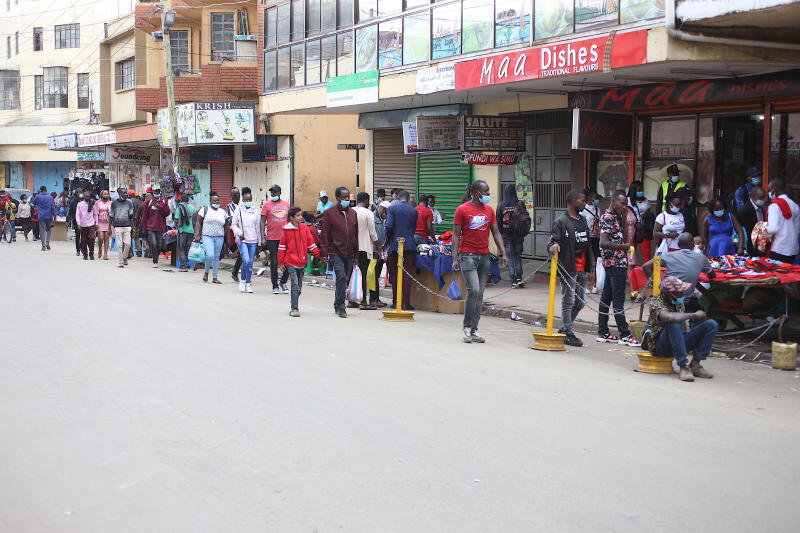×
The Standard e-Paper
Kenya’s Boldest Voice

River Road was busy as hawkers displayed their products for sale on River road. [Wilberforce Okwiri, Standard]
Small and Medium Enterprises (SMEs) are sceptical about what the future holds following the devastating economic effects of the Covid-19 pandemic on their businesses.







